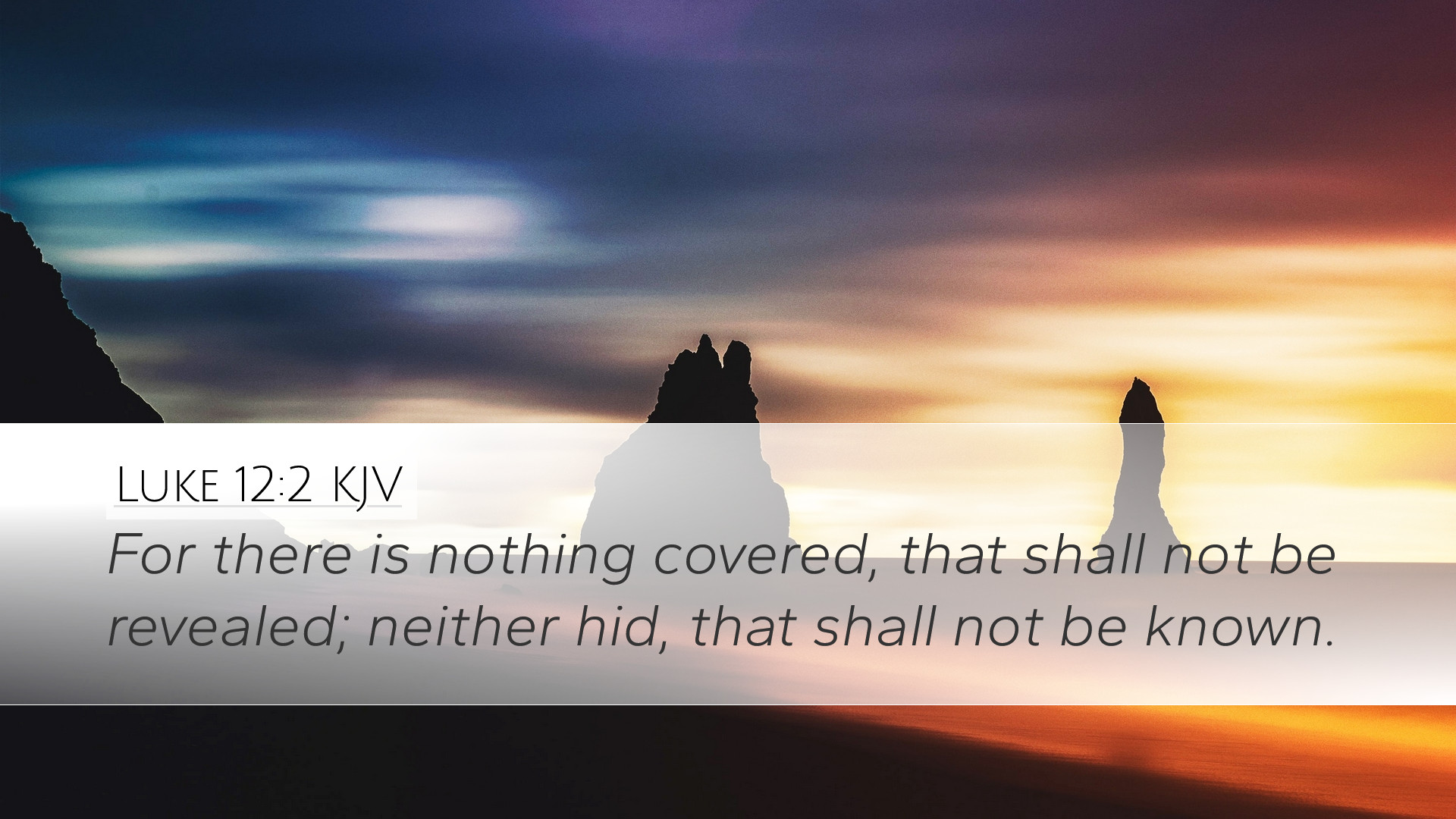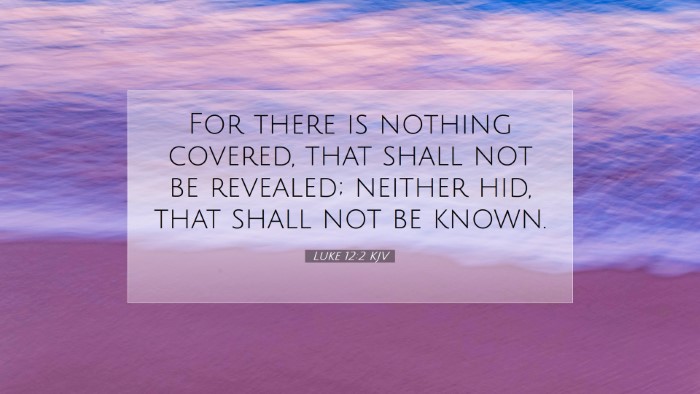Commentary on Luke 12:2
Luke 12:2 states, "For there is nothing covered, that shall not be revealed; neither hid, that shall not be known." This verse underscores a profound truth regarding divine justice and the ultimate revelation of all hidden matters. The following commentary elaborates on the implications and insights gleaned from this pivotal scripture.
Exegesis and Context
Within the broader context of Luke 12, this verse emerges amidst a discourse emphasizing the need for authenticity and the inevitability of divine revelation. Jesus speaks to His disciples about the dangers of hypocrisy and the importance of living a life consistent with one’s beliefs. The words used by Jesus reveal that all secrets and hidden intentions will eventually come to light, emphasizing the accountability inherent in the Christian life.
The Assurance of Revelation
Albert Barnes provides a key insight that the phrase "nothing covered" suggests that God, in His time, will uncover all deceptions and falsehoods. The underlying truth is that no one will escape the scrutiny of divine judgment. In this context, nothing concealed can ultimately remain shrouded, particularly in terms of our spiritual state.
The Dangers of Hypocrisy
Matthew Henry emphasizes the significant moral consequences of hypocrisy warned in this verse. He indicates that the secrets of the heart will be unveiled, leading to the inevitable exposure of one’s true self. The implications of living in pretense are addressed, where the facade one builds will ultimately lead to disgrace when divine judgment reveals heart conditions that contradict one’s public persona.
Practical Implications
This notion serves as a powerful reminder for believers to pursue honesty and integrity in their spiritual and interpersonal conduct. The exposure intended here is not merely punitive; rather, it aligns with God's desire for truth in our relationship with Him.
The Justice of God
Adam Clarke provides theological insight into the nature of God's justice, which demands that all hidden acts must be accounted for. He reiterates that, although people may think they can elude earthly accountability, God's omniscience ensures that all things will eventually be revealed. This assurance serves to comfort the faithful, while simultaneously warning the unrighteous of the consequences of their actions.
Historical Perspectives
In early Christian history, the implications of this verse were significant in the lives of believers facing persecution. The understanding that God sees all and will reveal truth meant that they could find solace in the midst of trials, knowing that their integrity and faith would, in due time, emerge victorious.
Spiritual Reflection
Luke 12:2 serves as a catalyst for personal reflection. Believers are encouraged to examine their own lives through the lens of transparency. This verse demands an audacious commitment to authenticity, challenging each individual to weigh their public persona against the truth of their inner reality.
Conclusion
In summary, Luke 12:2 encapsulates essential Christian teachings about truth, justice, and accountability. The synthesizing thoughts from the commentaries of Matthew Henry, Albert Barnes, and Adam Clarke provide a rich tapestry of understanding that enhances our grasp of divine revelation and the importance of living a truth-filled life. The call to righteousness is emphatically clear: in the end, all that is hidden will be made known, fostering a faith that is rooted in honesty, integrity, and the desire to stand unashamed before God.


